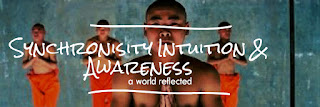The most common signs that an individual is sliding towards relapse
Relapse Warning Signs
The most common signs that an individual is sliding towards relapse include:
Isolation: This is where the individual starts to cut themselves off from other people. They start behaving secretively or even dishonestly. Those who attend AA meetings or other support groups will stop sharing or stop going to meetings altogether.
The feeling of being stuck in recovery: People become frustrated because they feel that they are no longer making any progress.
Loss of interest in recovery: People stop doing the things they need to do to stay sober, as if they have run out of steam or completely lost interest.
Anger and resentment: Life in recovery is not turning out as the individual expected, and they may blame this on those around them. These feelings provide an excuse to return to alcohol or drugs.
Denial of problems: The worst thing that a person in recovery can do is deny that they are having problems with life away from addiction. They might fool other people, but they cannot fool themselves for long. Problems that are not dealt with can become an obstacle to recovery.
Stinking thinking: This is when people become [excessively negative about their life] away from addiction. It is as if they are looking for an excuse to relapse.
Overconfidence: There is the well known saying that pride comes before a fall. Individuals who are overconfident about their recovery may be setting themselves up for disaster. It can lead to complacency, and people can be back in the midst of addiction before they even realize what has happened. Recovery is a serious business and people are most vulnerable when they let their guard down.
Feeling unable to cope: This is often a sign of imminent relapse. When people feel overwhelmed they are unable to think rationally. A desire to escape the discomfort can easily lead them back to addiction.
Romancing about the drink or drug: This is when people start to remember the times they felt happy as a substance abuser. They may begin to yearn for these lost days. Memory can play tricks on people, and the past can seem far rosier than it actually was. People can even forget how much they wanted to escape their addiction.
Addiction substitution: This is where the individual attempts to escape their difficulties in recovery by new maladaptive behaviors. This might involve exercising excessively or becoming obsessed with their job. Some individuals will turn to other mind-altering substances.
Behaving like a dry drunk: This is where people have stopped drinking or using drugs but continue to act much like they did before. Such individuals will have a weak commitment to sobriety and may relapse more easily.
Spending time with old crowd: If the individual drifts back to spending time with their old drinking or drug using buddies it can be highly dangerous. If people have a weak recovery they will easily succumb to the peer pressure to relapse.
Visiting drinking venues: It is usually safe for people with a strong recovery to visit a bar so long as they have a good reason to be there. It is dangerous when people go to these drinking venues in order to get vicarious pleasure from watching other people consume alcohol. It is also a terrible idea to go to these places out of loneliness. In AA, they say that if you sit in a barber shop long enough, you will get your hair cut.



Comments